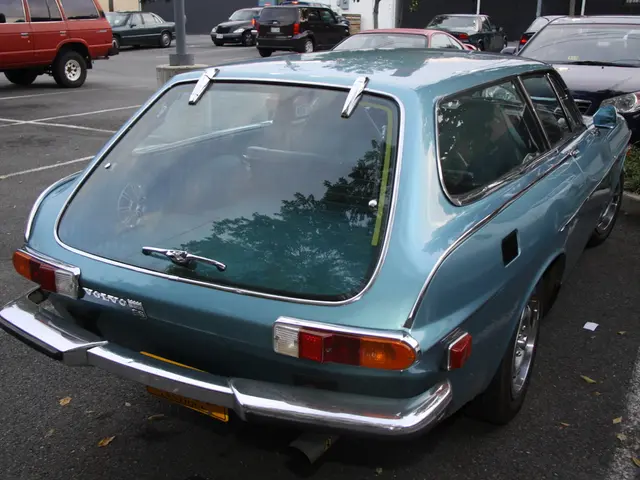Changing Dynamics in the Realm of Customizable Furniture Architecture
Modern Modular Furniture: Adapting to Our Changing Lives
In today's dynamic world, modular furniture has emerged as a versatile solution that mirrors our evolving lifestyles and aspirations. This innovative design approach allows for the crafting of spaces that are not only functional but also a reflection of our identity.
Modular furniture offers the unique ability to transform from a cosy nook for relaxation to a vibrant area for hosting friends, catering to diverse lifestyles and needs, such as young professionals and families. This adaptability is a testament to our innate ability to transform spaces, and the design is constantly evolving to reflect our adaptability, creativity, and changing needs.
The integration of smart features is a growing trend in modern modular furniture. Pieces now come with built-in charging stations and furniture that adjusts height with a simple touch, enhancing user experience and convenience. Digital configurators also allow customers to visualize their customized modular furniture pieces in real-time, offering a personalized touch to the design process.
Sustainability is a key focus in current trends and advancements in modular furniture design. Furniture is now designed to be reconfigurable, with tool-free assembly and detachable components, allowing users to adapt pieces for different spaces and needs over time, extending the lifespan of the furniture and reducing waste. Materials trending in sustainable modular furniture include bio-based, reclaimed, and rapidly renewable resources such as bamboo, reclaimed wood, and naturally varnished solid beech.
Functionally, modular furniture is often multifunctional, serving multiple purposes in compact spaces and supporting lifestyles from studio apartments to retirement downsizing. Smart technology integration is also growing, including occupancy sensors, LED lighting controls, and real-time energy monitoring dashboards to enhance energy efficiency and user convenience.
Design aesthetics combine sustainability with timelessness and adaptability. For example, the Oslo-based Vestre brand’s UNITY outdoor bench collection uses modular elements for diverse functional uses, from seating to play structures, created with durable sustainable materials optimized for different weather conditions. Office and home modular storage solutions—like the RASTERS system—apply industrial grids in eco-conscious materials to enhance versatility and longevity.
Modular furniture fosters a sense of community, from local artisans crafting unique pieces to consumers personalizing their environments. It serves as a testament to adaptability, creativity, and our innate ability to transform spaces in an ever-evolving world. Our surroundings not only enhance our daily experiences but also enrich our collective journey, nurturing connections in both small and significant ways.
From coffee tables that transform into dining tables, ready to accommodate guests at a moment's notice, to modular sofas that can be easily rearranged to match the mood of the day, modular furniture designs prioritize a balance between style and functionality. The essence of great modular furniture design lies in crafting spaces that reflect our identity and aspirations, making it an essential part of our lives.
- The design process of modular furniture can be personalized, allowing it to mirror one's unique identity and lifestyle, as seen in the Oslo-based Vestre brand's UNITY outdoor bench collection that serves diverse functional uses.
- Technology integration in modular furniture is on the rise, making it more convenient and adaptable to individual needs, with features such as built-in charging stations and furniture that adjusts height with a simple touch.
- Sustainability is a crucial aspect of modern modular furniture design, with materials like bio-based, reclaimed, and rapidly renewable resources increasingly being used, aiming to reduce waste and extend the lifespan of furniture pieces.
- Modular furniture is not just a solution for space constraints, it also plays a significant role in enhancing our daily experiences, fostering a sense of community, and enriching our collective journey, transcending from a simple furniture choice to a reflection of our adaptability and creativity in today's dynamic world.




